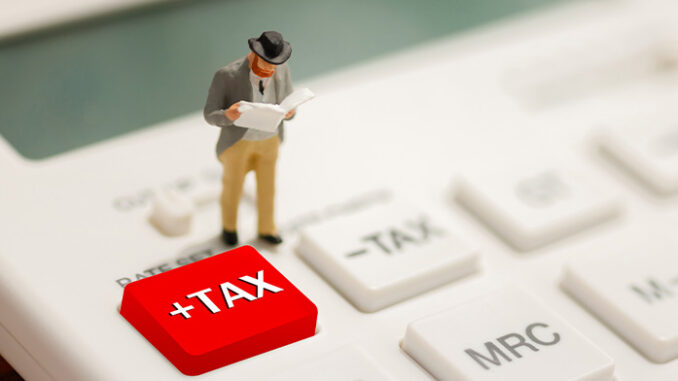
Arizona voters will have the opportunity to decide if property owners should be allowed to receive a property tax refund to cover “reasonable” costs accrued by unmitigated public nuisances related to homelessness, vandalism, property crime and drug use.
The property owner – either commercial or residential – would need to document the expense and be able to prove that it was a direct result of the government failing to enforce relevant public nuisance laws.
It would then be the State Department of Revenue’s responsibility to approve or deny the refund of the claims. If the claim is rejected by the state or county, property owners would be able to bring a civil claim to superior court. If the court rules in favor of the property owner, the local government would be required to repay the litigation costs.
There are multiple effects of Prop. 312, according to a report by the Arizona Common Sense Institute, one being that the threat of having to provide a property tax refund would encourage more law enforcement and initiatives to mitigate homelessness and crime. This would also allow properties to retain their value.
“The status quo is costly. Crime, drug overdoses, unsheltered homelessness, and other public nuisances have risen dramatically in Arizona and the greater Phoenix area since 2019,” reads the report. “This creates a negative economic impact for those parts of the city where local officials have failed to enforce existing laws – while it’s difficult to measure documented mitigation expenses directly, this impact does show up in valuations, vacancy rates, and appreciation.”
According to data aggregated by CSI, unmitigated public nuisances have resulted in a forgone commercial property appreciation of $2.1 billion in lost value since 2019.
“Commercial property within the areas… at high risk of an unmitigated public nuisance saw their Costar-estimated market rents appreciate by only 15.7% over the 2019-2023 period (or about half the rate for Phoenix as a whole),” reads the report. “General inflation over the same period was approximately 20%, meaning market rents in parts of the City with a combination of both high unsheltered homelessness and a high incidence of recent property crime fell in real terms over the past four years.”
While unmitigated public nuisances may cause property devaluation, Prop. 312 would not compensate property owners for that. Property owners can only be refunded for actual damage and costs that can be proven to be linked to unmitigated public nuisances.
“The real impact of tools like this on the books tends to be preventive: to avoid costly litigation and refunds, local governments may ultimately be more proactive about mitigating these nuisances if this proposal is enacted than they are today,” reads the report.
Multiple organizations have filed statements of opposition against Prop. 312 to the Secretary of State, saying that punishing cities and counties financially is not an effective way to address homelessness and crime.
“Many of us are one paycheck or one hard-earned month’s rent away from needing to pitch a tent ourselves,” reads a statement from Catherine Sigmon, co-founder of Civic Engagement Beyond Voting and Melinda Ilyer, policy director for CEBV. “Prop 312 tries the ‘out of sight, out of mind’ approach to people who have fallen on hard times, which is punitive without being effective.”
Ben Scheel, executive director of Opportunity Arizona, stated that Prop. 312 does not do anything to help the homeless population and would only “hand out tax giveaways to rich and corporate property owners.”
“Evictions continue to hit record levels in our state, and Arizona currently has the fourth-highest percentage of people experiencing homelessness nationwide,” Scheel stated. “Aside from being cruel, untested, and fiscally irresponsible, this proposal will worsen Arizona’s housing and homelessness crisis, widen our ever-expanding wealth gap, and deepen the state’s revenue crisis, hurting our state’s economy and all of our daily lives.”
Prop. 312 will be one of 13 propositions on Arizona’s ballot in November. Arizona voters will have the opportunity to decide if they would like to vote Prop. 312 into law.

